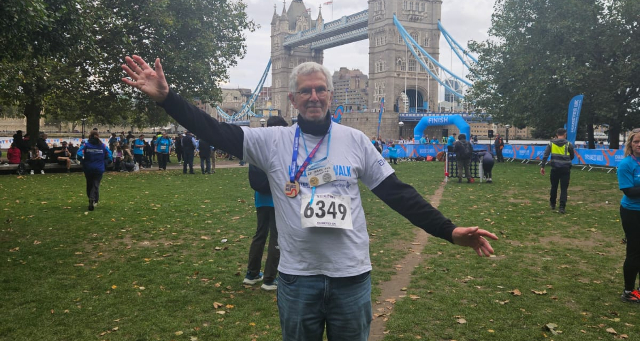
David
Diagnosed with type 1 in 1971
I'd never have imagined that a brisk walk every day could have such amazing benefits in so many different ways.
David, 57, was diagnosed with type 1 diabetes in 1971. In his story, he reveals how he's changed his attitude towards physical activity, and how a little bit of effort has made a huge difference to how he manages his condition.


